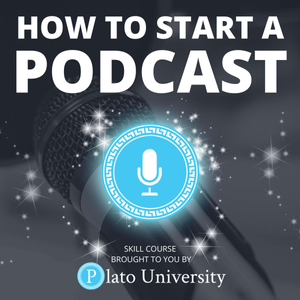
S04E01 - Rural Framing and data-informed exploration of the changing landscape of Rural America with Dr Brad Mitchell
03/28/24 • 53 min
Previous Episode

S03E27 - Dispatches from NFARE Conference in Chattanooga TN (November 15-17, 2023), an interview with Valerie Rutledge
Dr. Valerie Rutledge, Dean of the College of Health, Education, and Professional Studies at the University of Tennessee at Chattanooga, discussed the large, diverse mix of accredited and licensure programs her college oversees. With an extensive background as an educator and administrator, Rutledge highlighted impressions from the record-setting National Forum to Advance Rural Education conference. She noted the hundreds of attendees from 48 states and abroad, representing the importance of understanding widespread rural needs despite regional differences. If Rutledge had a "magic wand," she would increase rural schools' visibility and confidence while expanding opportunities and resources for rural students to unleash their potential. Dr. Rutledge can be reached at [email protected]. Michael Crosa helps people across the US to create, distribute, and monetize their podcasts. Learn more at Chattanooga Podcast Studios dot com. He is also the head of the PodNooga Network which can be found on Instagram and Facebook at PodNooga.
Next Episode

S04E02 - Computer Science in Rural Education Curriculum, an Interview with Ms. Karen Mix
In this episode, we discuss rural initiatives to train students in computer science. We interviewed Ms. Karen Mix, the co-director of CS4NorCal, a five-year research grant. This program creates K-12 computer science training. CS4NorCal was funded by a grant from the U.S. Department of Education, Education Innovation and Research (EIR) Program and sponsored by SSDA to support Computer Science (CS) professional learning and instruction in rural Northern California. The project is currently building a model for computer science in rural schools. Ms. Mix discusses the role of partnerships within the six counties in Northern California with professional development for teachers and generating access for teachers to attend. We discussed how the various ways this program has supported computer science programs in rural schools. We discuss how schools can find funding for these programs and how partnerships can aid resources and education. We discuss how the curriculum can be implemented at various levels and programs. Links of interest CS4NorCal Main Website - https://www.cs4norcal.org/ CS4NorCal Facebook - https://www.facebook.com/CS4NorCal/ CS4NorCal Linkedin - https://www.linkedin.com/company/cs4norcal/ Code.org - http://code.org CSforCA - https://csforca.org/ CS for All - https://www.csforall.org/ Computer Science Teachers Association (CSTA) - https://csteachers.org/ CS4NorCal Presentation - https://docs.google.com/presentation/d/1zvybwzYf4RiIGsfeu3R8J-T8bvcLgE4ssn_x5PWtMT0/edit#slide=id.g2b9a718b659_0_1733 Implementation Dashboard - https://lookerstudio.google.com/reporting/90b34553-bb57-4969-84fe-7af0d3a9c6e4/page/5iGTD This episode is sponsored by My Credential at https://www.mycredential.com/
If you like this episode you’ll love
Episode Comments
Generate a badge
Get a badge for your website that links back to this episode
<a href="https://goodpods.com/podcasts/national-rural-education-association-official-podcast-28807/s04e01-rural-framing-and-data-informed-exploration-of-the-changing-lan-47729618"> <img src="https://storage.googleapis.com/goodpods-images-bucket/badges/generic-badge-1.svg" alt="listen to s04e01 - rural framing and data-informed exploration of the changing landscape of rural america with dr brad mitchell on goodpods" style="width: 225px" /> </a>
Copy




